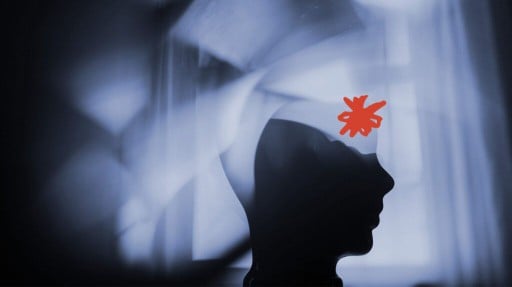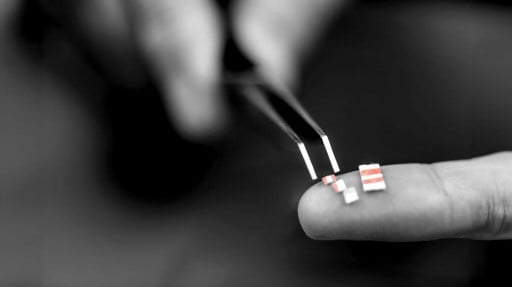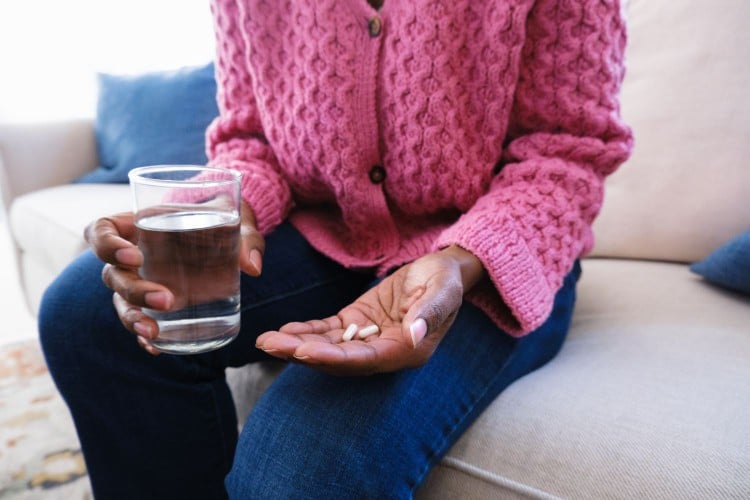
Researchers have carried out a study about whether there is a connection between when migraine attacks occur and factors such as sleep quality, energy levels, and mood quality.
The scientists acknowledged that prior studies already showed a connection between poor sleep and an increased risk of a migraine attack, but they believe that it is possible to narrow the window of timing for attacks.
The study participants logged daily multiple electronic diary entries about their mood and energy levels as well as logging their sleep and perceived sleep quality.
Migraine attacks affect millions of people every year.
According to the American Migraine Foundation, around 37 million people (including both adults and children) in the United States experience these painful headaches.
Researchers in the new study took a closer look at potential migraine triggers. Their study required participants to track multiple metrics daily, which set apart the study from prior research.
One of the key study findings showed that participants who perceived a reduced quality of sleep the night before had a 22% increased chance of a migraine attack the following morning.
The study was published in the journal Neurology.
Collecting data from people with migraine
The symptoms of migraine attacks vary from person to person.
According to the, some symptoms of a migraine attack include severe pain on one side of the head as well as nausea and sensitivity to light. The attacks can last up to 3 days.
Researchers wanted to learn more about predicting and possibly preventing these attacks through tracking by mobile phone apps and electronic diaries.
The study had a participant pool of 477 people, with the youngest participant being 7 years of age and the oldest participant being 84 years of age. There were 291 female participants and 186 male participants, which the study authors mentioned set their research apart from prior work since other studies typically have mostly female participants.
The participants had to report their emotional state throughout the day in an electronic diary. The emotional states included:
anxiety
mood
energy
stress
The participants also reported on both their perceived sleep quality and sleep duration with mobile apps. The participants wore actigraphy monitors, which look similar to smartwatches and measure activity (including sleep times, wake-up times, and any sleep disruptions).
Researchers said this allowed them to see how the participants’ actual sleep time and sleep quality compared to how the participants perceived their sleep.
Participants also reported any migraine attacks they experienced as well as the timing of these headaches.
The participants logged the information for 2 weeks. After collecting the information, the researchers performed a statistical analysis of the data.
Poor perceived sleep increases migraine risk
The researchers said the results showed a connection between perceived sleep quality and energy changes and an increased risk of migraine attacks.
People who felt like their sleep quality was lower experienced a 22% increased chance of having migraine the following morning. However, this did not impact afternoon/evening headache chances.
Compared to the sleep results shown in the actigraphy monitor, there was a discrepancy between perceived sleep quality and actual sleep quality.
The researchers also found that lower energy levels the prior day increased the chances of a morning attack the following day by 16%. Conversely, people who experienced a much higher energy level than normal combined with a higher stress level than normal saw a 17% increased chance of migraine the next day in either the afternoon or evening.
The scientists said they did not find any connection between mood issues such as depression or anxiety levels and an increased risk of migraine.
“Surprisingly, we found no link between a person’s anxiety and depression symptoms — either having more symptoms or having higher-than-average levels of symptoms — and their likelihood of having a migraine attack the next day,” said, PhD, a study author and National Institutes of Health investigator.
Overall, researchers said the study offers more insight into how sleep and energy patterns can be used to predict migraine and contribute to prevention. Tracking these patterns can give people with a history of migraine the ability to improve both self-awareness and the management of their condition.
Circadian rhythm and migraine
Merikangas mentioned that their findings “highlight the role of circadian rhythms in headache.”
Circadian rhythms refer to the 24-hour cycle of being awake and sleeping. As noted by the Sleep Foundation, circadian rhythms “dictate multiple processes in the body, including alertness or sleepiness, appetite, and body temperature.”
Disruption of circadian rhythms can affect how one feels throughout the day and can even contribute to memory issues.
“Research suggests that approximately half of patients with migraine have a circadian pattern to their headaches, with the headaches occurring at about the same time each day,” Burish said. “A specific gene variant in patients causes both migraine and a circadian rhythm disorder called advanced sleep phase disorder, where patients go to bed and wake up much earlier than most other people.”
Burish thinks that an increased understanding of how sleep factors into migraine will help with prevention.
“We think circadian rhythms might be important in the prevention of migraine because a circadian-related molecule called melatonin is sometimes used as a preventive treatment for migraine based on positive clinical trial data,” noted Burish.
Burish also thinks the improved understanding can help develop better medication and help people make behavioral changes to reduce the frequency of headaches.
“Aligning our eating, exercise, sleeping, and other behaviors to our individual circadian rhythm [may] help prevent headaches,” he said.
“There are specific patterns of headaches that may come on more frequently and intensely depending on the sleep cycle – this can include migraines,” Gee said.
For people who experience migraine, Gee emphasized the importance of sleep hygiene.
“It is often very important to maintain an adequate sleep schedule,” commented Gee. “Going to sleep when tired and getting the necessary hours to feel rested is very important in all patients with chronic headaches, specifically those with migraine and cluster headaches.”
“The importance of this kind of study will only aid in supporting our knowledge about encouraging patients with headache disorders to improve their overall sleep behavior,” he added.




:max_bytes(150000):strip_icc()/Health-GettyImages-1244575423-991d1ebe9942424f9bb35b650fb5ff11.jpg)



